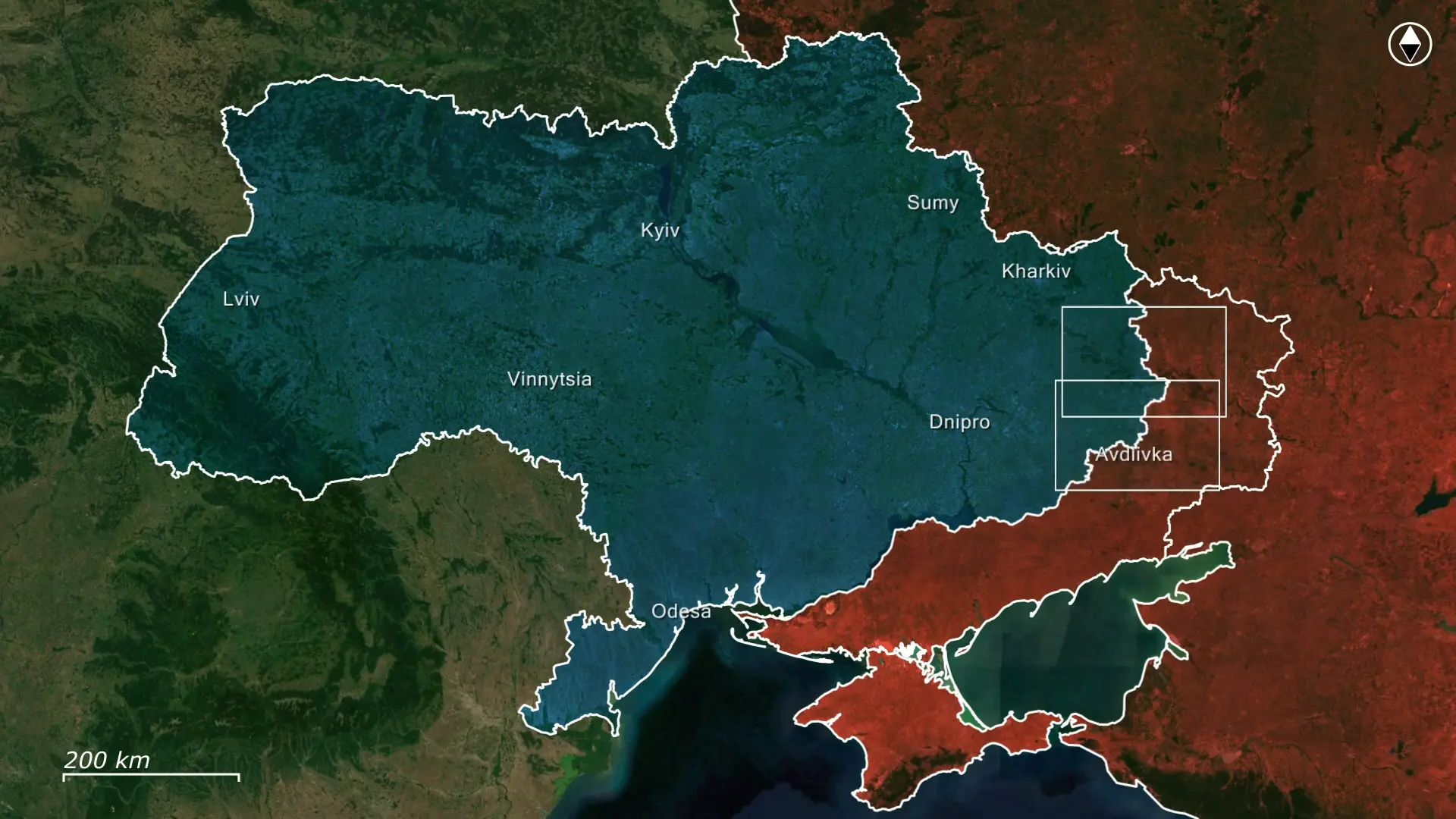Here, after months of intense fighting, the Russians halted their assaults to reorganize and rest their forces from intense fighting that brought little to negative territorial gains. This came in time as Ukrainians deployed additional reinforcements to the Toretsk area, exploting a window of opportunity for significant counterattacks on Russian flanks.

Earlier, Russian forces lost key positions in Toretsk’s central high-rise area, prompting them to halt offensive actions and shift their focus to defense. However, the Russian command struggled to establish a defensive line in time, as their troops needed to regroup and recover before resuming any operations.
This situation compelled Russian command to prioritize deploying their remaining combat-ready forces to the most intense battle zones, specifically Toretsk’s central high-rises and the Zabalka district to the south. While this decision helped preserve Russian positions in these critical areas, it left gaps in the defenses of regions with lower recent activity. In Druzhba, where only skirmishes between reconnaissance groups had occurred, only a small Russian infantry group remained as most forces were concentrated in Toretsk’s key zones. Druzhba holds significant tactical value, offering Russians a potential staging ground for encircling Toretsk. The dense tree lines near an elevated railway embankment provide an effective route to bypass Ukrainian defenses and threaten a semi-encirclement from the north. Recognizing this, Ukrainian forces decided to exploit the weakened Russian defenses in Druzhba.

Before launching a decisive assault, Ukrainian forces deployed a large number of specialized drones modified for bombing attacks. Combat footage shows Ukrainian drone operators using heavy hexacopters to drop TM-62 anti-tank mines on Russian positions in Druzhba. These mines, carried by hexacopters, proved highly effective for destroying fortified positions, such as houses used by Russian troops. This tactic succeeded in demolishing most structures in Druzhba, forcing the Russians to rely on improvised defenses around a few trenches. Simultaneously, Ukrainian operators used regular drones to drop smaller high-explosive grenades on exposed Russian fighters in the ruined houses, finishing off any remaining resistance. These coordinated strikes overwhelmed the unprepared Russian garrison, inflicting severe losses.

With Russian positions severely weakened, Ukrainian forces launched a night assault to retake the northern part of Druzhba. Using the cover of darkness and dense tree lines, Ukrainian stormtroopers moved undetected, making this an ideal avenue for attack. Concealed in the treelines, the Ukrainian forces surprised the outnumbered Russian defenders, who could not spot them until they entered the town. The Russians, stationed in residential houses already devastated by Ukrainian artillery and drone strikes, had no solid positions for defense. Under the intensity of the Ukrainian counterattack and with insufficient defenses, Russian forces were forced to withdraw. This allowed the Ukrainians to successfully recapture the northern part of Druzhba, creating a new axis of advance to strain Russian reserves further.

Overall, the extension of Russian forces and their shortage of combat-ready troops led to the expansion of Ukrainian counterattacks and their territorial gains at the weakest points of Russian defense. These Ukrainian gains forced the Russians to deploy additional reserves to this section of the front, which is further stretching their defense thin. Reinforced pressure in tactically important Druzhba will fix a considerable number of Russian forces, which will make them lose additional positions in Toretsk, as they can't effectively defend this entire section of the frontline.








.jpg)








Comments